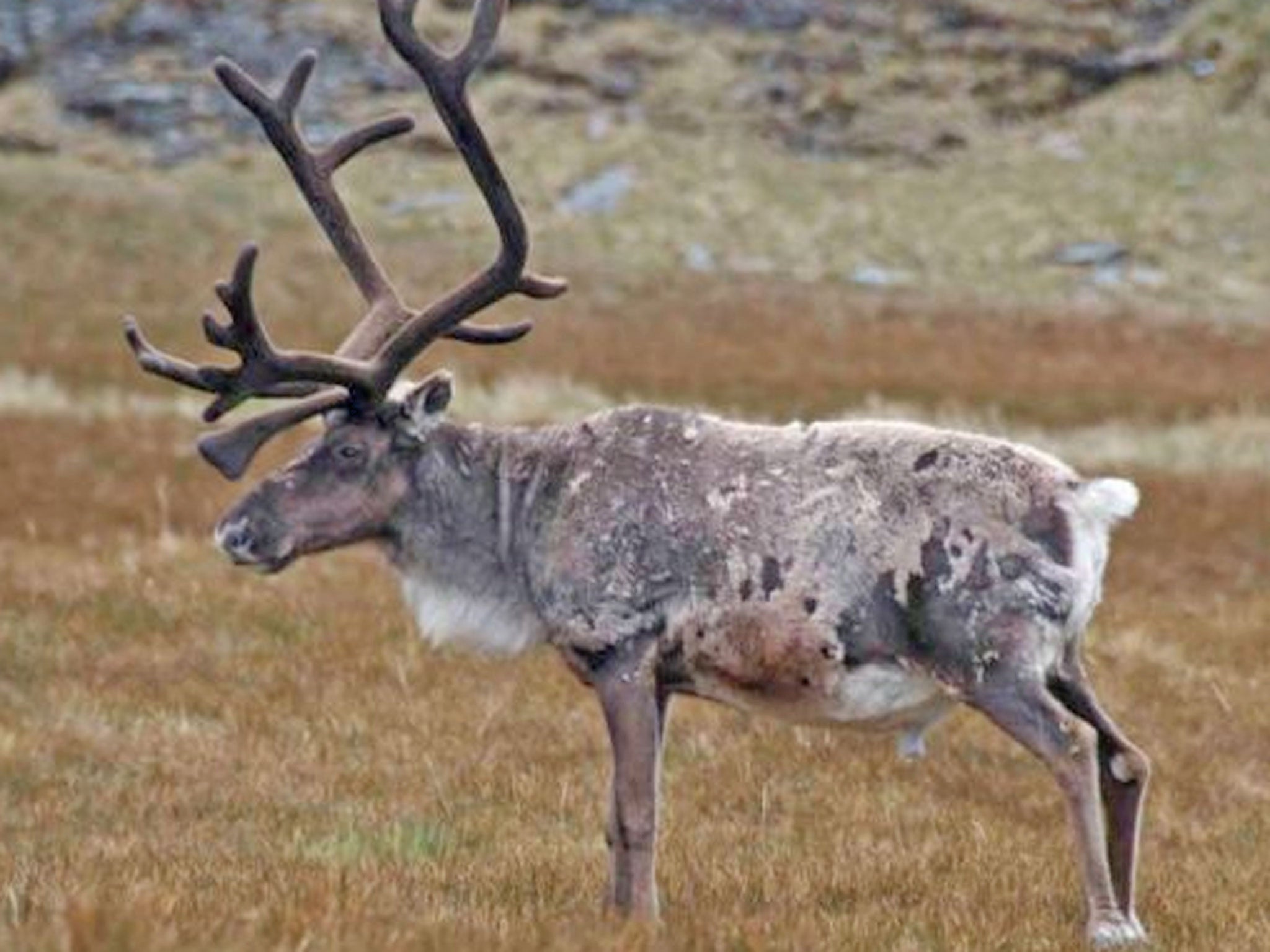South Georgia leads where Britain may follow with mass reindeer cull
British-owned island takes drastic action to stop animals destroying native habitat

Your support helps us to tell the story
From reproductive rights to climate change to Big Tech, The Independent is on the ground when the story is developing. Whether it's investigating the financials of Elon Musk's pro-Trump PAC or producing our latest documentary, 'The A Word', which shines a light on the American women fighting for reproductive rights, we know how important it is to parse out the facts from the messaging.
At such a critical moment in US history, we need reporters on the ground. Your donation allows us to keep sending journalists to speak to both sides of the story.
The Independent is trusted by Americans across the entire political spectrum. And unlike many other quality news outlets, we choose not to lock Americans out of our reporting and analysis with paywalls. We believe quality journalism should be available to everyone, paid for by those who can afford it.
Your support makes all the difference.Britain’s problem of its woodlands being destroyed by deer, revealed in a recent scientific study, has been echoed and dealt with on the far side of the world.
On the remote, British-owned island of South Georgia in the South Atlantic, large numbers of reindeer, introduced a century ago and now over-grazing the island vegetation, have been successfully culled.
Nearly 2,000 animals have been removed, at a cost of £500,000, in the first half of an operation which will be completed this time next year, according to the Government of South Georgia and the South Sandwich Islands (GSGSSI), which is located in Port Stanley in the Falklands.
The reindeer were introduced by Norwegian whalers to two parts of South Georgia in the early 1900s, and their numbers increased substantially after whaling ceased in the mid-1960s. “They have had a devastating impact on the island’s vegetation, with knock-on effects on native bird species,” the GSGSSI said in a statement.
The situation is strikingly similar to that revealed in the recent study from the University of East Anglia which said Britain’s deer population was out of control, with numbers now reaching levels that are causing sustained damaged to wild flowers and birds.
In the first scientific assessment of the density of deer living in the English countryside, the researchers said that only a dramatic increase in culling could prevent the “hyper-herbivory” that is destroying the nation’s woodlands and its wildlife. This has now happened in South Georgia – and just as it was Norwegians who bought the animals, so the Norwegians were instrumental in removing them.
In January and February a group of Norwegian reindeer experts, including indigenous Sami herders and expert marksmen, joined GSGSSI staff to undertake the first phase of the operation. More than 1,900 animals from the Busen area (one of two peninsulas on South Georgia that were inhabited by reindeer) were culled, either by being herded into a corral where they were humanely put down under veterinary supervision, the GSGSSI said, or, in outlying areas, where the terrain meant it was not possible to herd animals, by being shot by experienced marksmen from the Norwegian Nature Inspectorate (SNO).
In addition to the work on the Busen area, the SNO marksmen made a start on the larger Barff Peninsula and shot more than 1,500 animals from remote locations. It is thought that more than 1,500 animals remain in the Barff area and this work will be completed in January and February 2014.
The eradication of reindeer is one of a number of projects (including eradication of rats, mice and non-native plants) designed to safeguard the native species and habitats of the unique environment of South Georgia.
Join our commenting forum
Join thought-provoking conversations, follow other Independent readers and see their replies
Comments